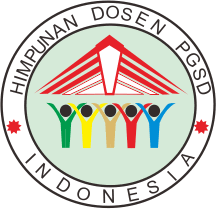Pengaruh model pembelajaran think talk write dan motivasi belajar terhadap kemampuan menulis teks nonfiksi
Abstract
This study aims to: (1) determine the differences in the ability to write non-fiction text between students who are taught using the Think Talk Write model and the Cooperative Integrated Reading and Composition learning model; (2) determine the differences in the ability to write non-fiction text between students who have high motivation and low motivation; (3) determine the interaction between learning models and learning motivation on the ability to write non-fiction text. This type of research is a Quasy Experimental with a pretest-posttest control group design. The data collection technique consisted of a test of the ability to write non-fiction texts and a learning motivation questionnaire. The prerequisite test for data analysis consisted of a normality test, a homogeneity test and a balance test. The data analysis technique was done by using Two Way Annova. The conclusions of this study: (1) there are differences in the students' abilities in writing non-fiction text which are taught using the Think, Talk, Write (TTW) and Cooperative Integrated Reading And Composition (CIRC) learning models (p = 0.000 <0.05); (2) there is a difference in the ability of students with high learning motivation and students with low reading interest in writing non-fiction texts (p = 0.000 <0.05); (c) there is an interaction between learning models and learning motivation on students' ability to write non-fiction text (p = 0.047 <0.05).
Keywords
Full Text:
PDFRefbacks
- There are currently no refbacks.



